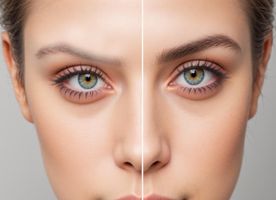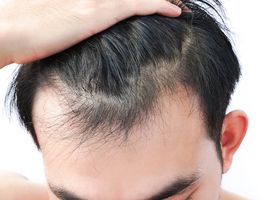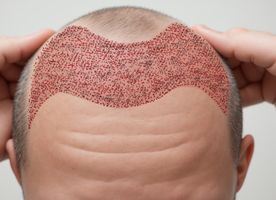Hairline Lowering Surgery in Calle Max Planck
Search and Compare the Best Clinics and Doctors at the Lowest Prices for Hairline Lowering Surgery in Calle Max Planck
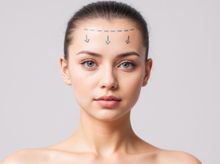




















































































































































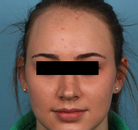
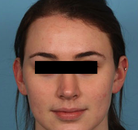
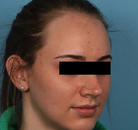
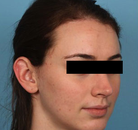
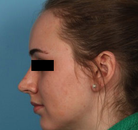
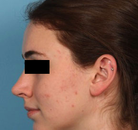
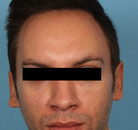
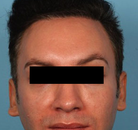
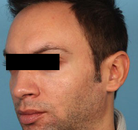
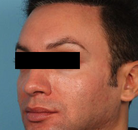
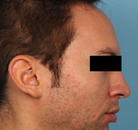
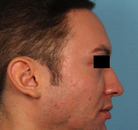
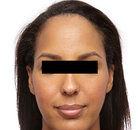

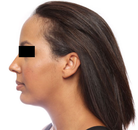
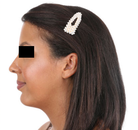
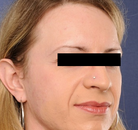
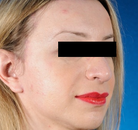
No Time?
Tell us what you're looking for and we'll reach out to the top clinics all at once
What does a Hairline Lowering Surgery Procedure Involve?
Hairline lowering suregry is performed under local or general anesthesia. Before the operation begins, the surgeon draws an anticipated post-operative hairline. The surgery is performed according to this and an incision is made along the hairline. The excessive scalp is cut and removed and the rest is stretched to the new hairline. If this is not enough, tissue expanders are used to make it to the new hairline level. Sutures are used to fix the scalp to the bone and incisions are stitched with bandages being applied over the top.
The medical professional ensures that the incision marks are seamlessly concealed within the hairline, thereby reducing any visible traces of the procedure. Once the operation is concluded, the cut is stitched, and a gentle dressing is applied to shield the wound and diminish inflammation. It's important to understand that the intervention may lead to temporary loss of sensation or minor prickling around the area of incision, however, these symptoms tend to dissipate within several months.
How Long Should I Stay in Calle Max Planck for a Hairline Lowering Surgery Procedure?
Hairline lowering surgery is an outpatient procedure that takes around 1.5 to 2 hours to complete. After the effects of the sedation subside, you are allowed to leave. Still, you should aim to stay in Calle Max Planck for at least 6 days post-op. During this period, you will have a follow-up with the surgeon to check everything is healing as expected and the sutures are removed, usually after 5 to 6 days - this is when you're given the all-clear to travel home.
What's the Recovery Time for Hairline Lowering Surgery Procedures in Calle Max Planck?
It will take between 3 to 6 months to allow the regrowth of hair through the scar, which is important as it hides the scar. Recovery time varies from person to person and some people can get back to their normal routine even after 3 days. At least a week is usually required to get back to normal activities and you may find some swelling and bruising over your forehead in the early days. Pain is managed with painkillers and all symptoms subside after a couple of days. A numbing of the forehead is common and normal feeling usually returns after 3 to 5 days.
What sort of Aftercare is Required for Hairline Lowering Surgery Procedures in Calle Max Planck?
Aftercare following a Hairline Lowering Surgery is crucial to ensure a smooth recovery and minimization of potential complications. The following are some useful aftercare tips:
- Use icepacks in the initial days to help with inflammation and bruising. Ice is effective in reducing swelling immediately.
- Do not take anti-inflammatory medicines as they increase bleeding tendency.
- Continue taking painkillers prescribed by your doctor.
- Try not to look upwards and avoid frowning as this can be damaging to your stitches.
- Do not lift heavy objects.
- Keep your head a little higher whilst resting.
- Ensure that tight bandages have been applied over the wounds and replace regularly with fresh ones.
- Do not take a bath when the bandages are still intact as a wet bandage can be the cause of infection.
- Avoid strenuous activities such as the gym, running, swimming, etc. for at least 2 weeks after the surgery.
- Do not put hair bands or any other accessory on your head for some time.
- Do not drink or smoke as it will hinder the healing process.
- Ensure you have a diet rich in vitamin C as it makes the healing process faster.
What's the Success Rate of Hairline Lowering Surgery Procedures?
A Hairline Lowering Surgery frequently yields remarkable results, with a significant number of individuals expressing contentment with their post-procedure appearance. Nevertheless, outcomes may differ based on the medical institution or medical professional involved. With the possibility of the scar being visible with certain hairstyles, Hair Transplantation could be applied to further reduce the appearance of any scarring.
Notably, while Hairline Lowering Surgery tends to yield positive results for the majority, it might vary on an individual basis. Factors such as your unique hair growth pattern, scalp flexibility, and the overall state of your hair condition could all influence your final outcome. Therefore, maintaining ongoing communication with your medical professional and adhering to their recommendations both pre and post-treatment is crucial to optimising your results.
Are there Alternatives to Hairline Lowering Surgery Procedures in Calle Max Planck?
Surgery is not the only option. Consider these methods before opting for surgical treatment:
- Grafting hair (Hair Transplant): with this technique more hairs are grafted along your hairline instead of lowering it. This is also used for the thickening of your hair. A new layer of hair is grafted below your natural hairline. 1200 to 2400 hair strands are grafted. These hairs fall out after 3 weeks then regrow in 4 months. 10 months is required before you'll see the true longterm result. This is a non-surgical alternative to hairline lowering surgery and it is found to be very effective in reducing the size of your forehead.
- Hairstyling: You can hide a big forehead by styling your hair in such a manner. Of course, this is a non-surgical method. Choose those hairstyles which cover your forehead the most. Some people will use headscarves and hats to also hide their forehead.
This information has been accurately sourced and verified by a medical professional for its accuracy, however, we strongly recommend you to consult with your doctor before pursuing medical procedures overseas.





